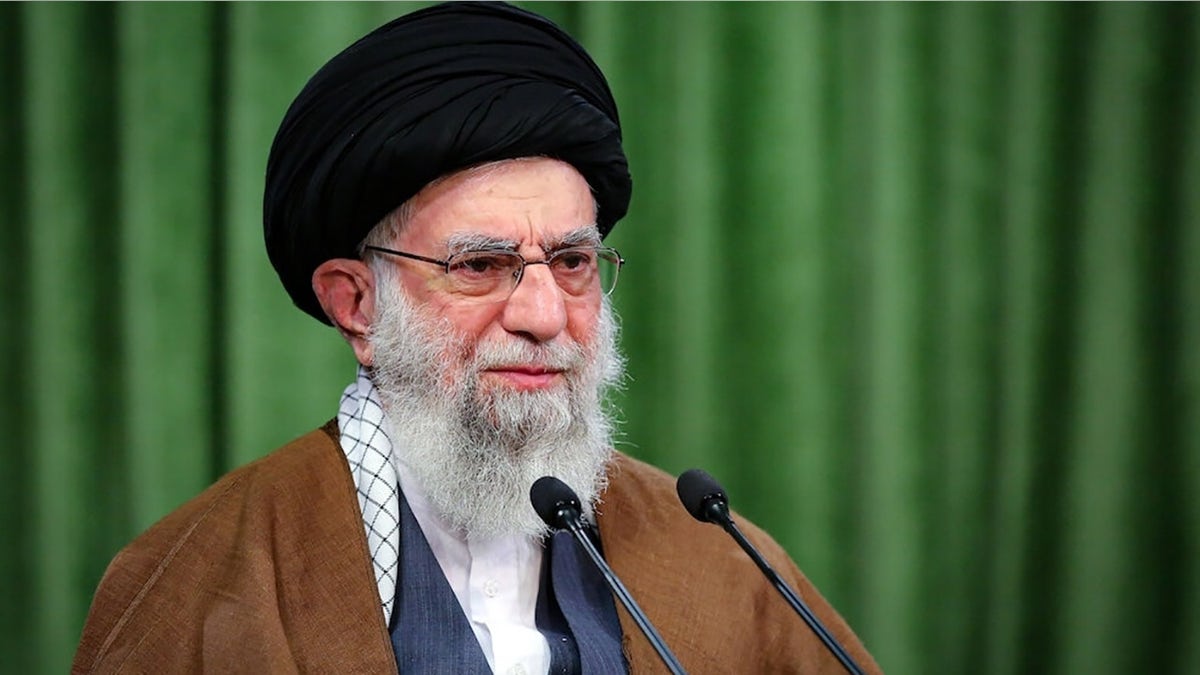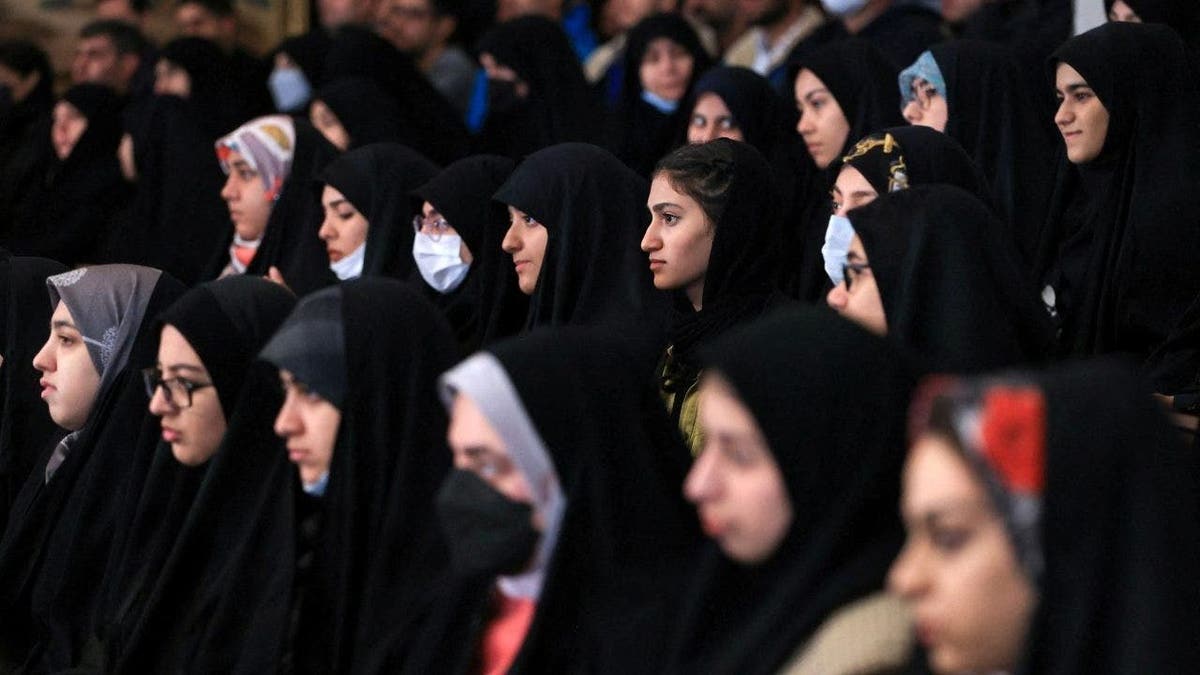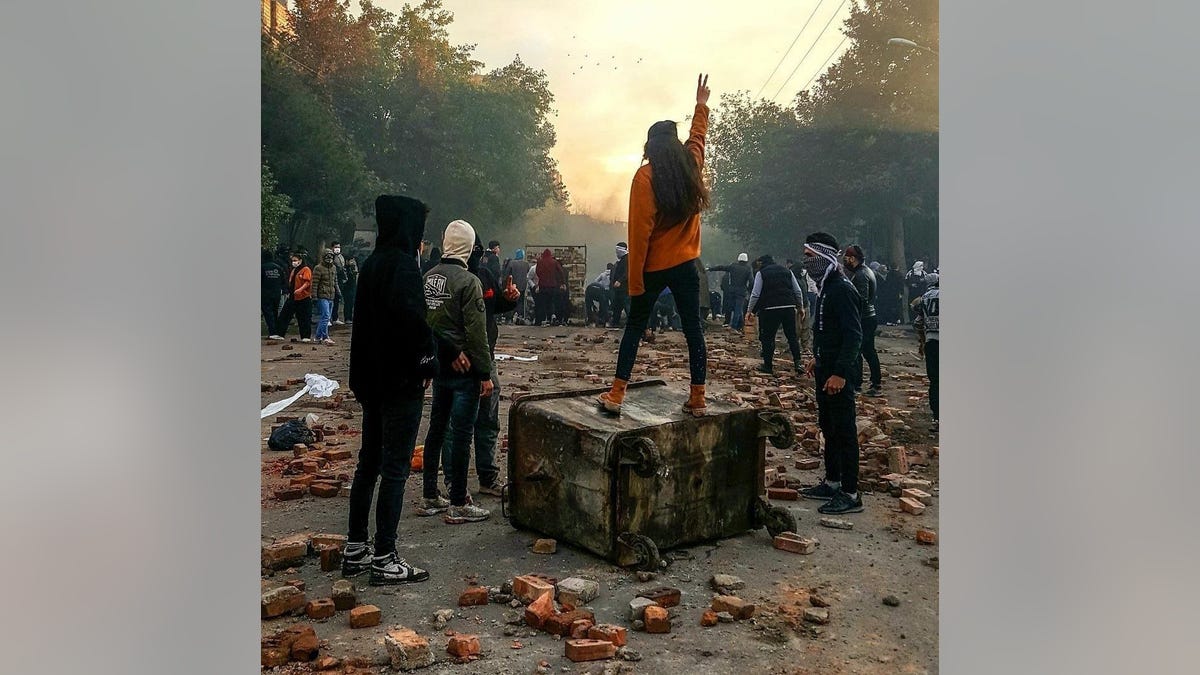Iranian regime becoming 'more fragile and fragmented: Crown Prince Reza Pahlavi
Exiled Crown Prince of Iran Reza Pahlavi discusses Iranians fighting for freedom against the regime, the path for a free and democratic Iran, and the calls for the designation of the Iranian Revolutionary Guard Corps as a terrorist organization.
Iran Supreme Leader Ayatollah Ali Khamenei called for the death penalty for whoever poisoned hundreds of schoolgirls – saying if the string of incidents are deliberate it would be an "unforgivable crime."
"If the poisoning of students is proven, those behind this crime should be sentenced to capital punishment and there will be no amnesty for them," Khamenei said of the poisonings, according to a CBS News report Monday.
The comments come as Iranians officials in recent weeks have begun to acknowledge the poisonings, which started last year and have caused hundreds of schoolgirls across the country to fall ill.
The attacks have so far affected over 50 schools and more than 400 schoolgirls in 21 provinces across Iran, with some politicians placing blame on religious extremist groups opposed to girls' education.
IRAN FORCES FEMALE STUDENTS TO ATTEND HIJAB ‘COUNSELING’ AFTER MONTHS OF WOMEN’S RIGHTS PROTESTS

Iranian Supreme Leader Ali Khamenei gives a live broadcast on state television on the occasion of Mawlid al-Nabi or Prophet Muhammad's birth anniversary in Tehran, Iran. (Getty Images)
However, little information is known about how the poisonings happened or whether they were deliberate, and Iran has no previous history of religious extremists targeting female education.
Iranian Interior Minister Ahmad Vahidi has alluded to authorities gathering "suspicious samples" from some of the schools, though he did not elaborate on what was found and instead urged the public to remain calm while accusing enemies of the regime of attempting to spread fear.
Meanwhile, parents have taken to social media to post photos of schoolgirls in emergency rooms with IVs in their arms, with the girls complaining of headaches, heart palpitations, shortness of breath, nausea, vertigo and feeling lethargic. Others have described smelling tangerines, chlorine or cleaning agents.
"A very bad smell suddenly spread, I got dizzy and I fell to the ground," one schoolgirl recounted, according to CBS.

Female students attend a ceremony of National Student Day at Tehran University in Tehran, Iran. (West Asia News Agency)/Handout via REUTERS)
Reports of attacks continued over the weekend, with one student complaining she "felt nausea and intense pain in the chest" and that her "legs were numb" after a suspected attack.
One emergency doctor at a hospital in the western city of Borujerd, where one of the suspected attacks took place, said that "most of the students suffered symptoms such as headaches, respiratory problems, lethargy, nausea and hypotension."
The suspected attacks also come amid months of protests over the death in police custody of Mahsa Amini, who was arrested for being found in violation of the country's head covering laws. Some of those protests have been joined by schoolgirls, with New York-based Iranian-American activist Masih Alinejad saying the girls were now "paying the price" for their outspoken behavior.
"Now the girls of Iran are paying the price for fighting against the compulsory hijab and have been poisoned by the government," Alinejad said on Twitter.

Demonstrators in Iran cry out in the streets. (Credit: NCRI)
CLICK HERE TO GET THE FOX NEWS APP
Maryam Rajavi, the president-elect of the National Council of Resistance of Iran, took aim at Khamenei's response on social media Monday, arguing the supreme leader is attempting to pass blame for the poisonings.
"Belatedly, Khamenei has woken up and is looking for others to blame for poisoning schoolgirls in fear of an uprising," Rajavi said. "But there's no one to blame other than himself and the agencies and elements under his command. Otherwise, Khamenei must accept a visit by an international investigative mission which we asked the UN to form from Day 1. In the meantime, we must step up our protests and demonstrations."
Authorities have sought to assure parents that they are taking the matter seriously, with Iranian Education Minister Yousef Nouri saying on state television Sunday that they fully understand the parents' concerns and are following up the issue seriously.
Meanwhile, Grand Ayatollah Abdollah Javadi Amoli called on officials to "solve the problem as quickly as possible ...to reassure the nation."
"It is frightening to note that the origin of the poisoning of students has not yet been determined," he said.





















